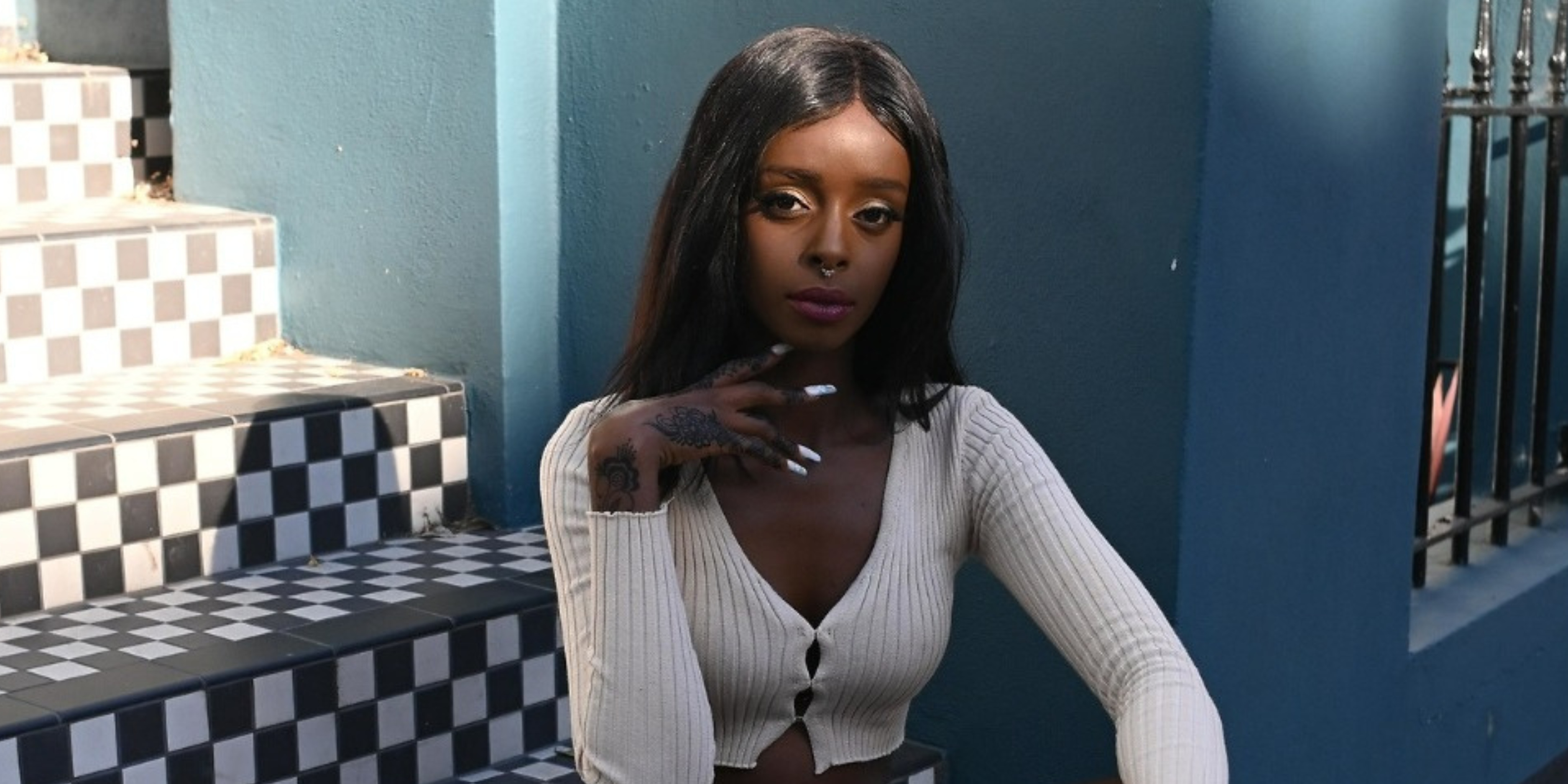
This International Day of Zero Tolerance for Female Genital Mutilation Savera UK Youth Advisory Board member Ayo Folarin interviewed female genital mutilation (FGM) survivor Shamsa Araweelo to talk about her experience and the work she is doing to raise awareness and help end FGM for good. Read Ayo’s interview with Shamsa below.
Female genital mutilation (FGM) is a procedure in which the female genitals are partially or totally removed, without health benefits or medical reasons. This is a violation of human rights and as a survivor of the practice, Shamsa Araweelo is working to raise awareness by talking about her own experience. Shamsa is currently training to become a police officer. She shared with us how she is still facing consequences from the procedure she had undergone 16 years ago, and despite her personal traumatic experience she is driven to advocate for change, with the aim to see FGM eradicated one day. Something that we all wish to see happening.
One of the campaigns Shamsa is passionate about, is changing the name of FGM to ‘female genital cutting (FGC)’. Explaining her reasons, Shamsa said she feels FGM doesn’t take into consideration how survivors might feel and perceive themselves as being “labelled mutilated”.
Shamsa, who is also a survivor of forced marriage, said: “The name doesn’t really change anything, the practice is still just as horrendous – you’ve just described them as mutilated.”
She shares her fears on how survivors may not seek professional help if they are constantly referred to as being mutilated, speaking on her personal experience. Shamsa explained struggled with it while growing up, which prevented her from attending her GPs, a gynaecologist or even the emergency room.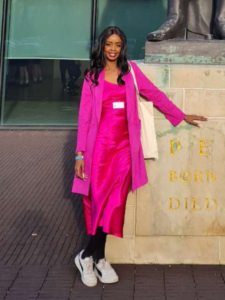
As we continue our conversation, we went more into depth on how FGM has affected Shamsa on a psychological and physical level. She said: “I was really insecure. I was terrified of speaking to anybody about it because there’s ‘shame’ linked to that procedure, if you talk about it it’s ‘shameful’, if you try to get it changed it’s still ‘shameful’. Keep it and just suffer basically.” Her wider family were the perpetrators, with Shamsa’s mother strongly against FGM, but out of the country when it took place.
Talking about the aftermath, she tells us she did not resent her family members who carried it out. Shamsa said: “I was just confused. When I got to realise that it was a crime essentially and a child abuse, sexual abuse, I started to question my family.” She was also able to confront her family member who held her down during the procedure when she was only six, to which they responded, ‘‘it is something we all did, we did not know any better” showing a lack of understanding of the gravity of what had happened.
Shamsa said: “I had to really sit back and think I’m talking to somebody who is traumatised and who has never had any type of help in any way, shape or form. There isn’t anything that I can say that will make them apologise or feel any type of sympathy or empathy as to what they did to me. It was very hard for me to deal with.”
Speaking about living with FGM, Shamsa refused to be intimate with anyone for a long time due to the procedure. She speaks on the hardship, of being sexually assaulted especially when FGM had been performed, causing great pain and a sense of violation.
Shamsa is still currently suffering due to FGM, which made her attend her GP, sharing that doctors and nurses do not get a lot of training, even though the practice is illegal in the UK. Shamsa describes the lack of training among professionals as a form of discrimination and institutional racism. She tells us she has encountered professionals who may not even know what FGM looks like, raising the question on how protection can occur for those who are at risk or a survivor. Shamsa speaks on the importance of more training for medical professionals, even if they number of victims of FGM is low, it is still vital.

As well as calling for more education for professionals, Shamsa tells us even survivors she has spoken to who have undergone the procedure haven’t recognised FGM as a crime. She said: “Some didn’t even know that it was wrong and they live in the UK, because it’s so normalised and if you live within a community that normalises a type of abuse, you’re never going to think that it’s wrong until you hear somebody say it. Only when I started talking about it she said she never thought it was wrong – she’s 24-years-old.”
“I was absolutely gobsmacked but I shouldn’t be surprised because there’s not really much education on the topic. People talk about it because they want the attention and then it just dies out completely and the survivors are left to deal with the implications for the rest of their lives. No one is going to help, defend, so it continues to be normalised, it continues to be normal.”
It might be presumed that a survivor of FGM would receive support around their mental health and wellbeing, however, Shamsa reveals how she receives more support from her social media platforms – TikTok and YouTube, with viewers having the drive to educate themselves. She said: “I’ve received the most amazing support I could never have imagined. The kindness, men, women, doesn’t matter sexual orientation there is pure kindness.” Her videos and socials create a sense of community and empowerment for survivors, as they are able to see the support she gets opposed to hate, encouraging them to speak out without fear or receiving judgement, but worth being in recipient of love and respect.
Shamsa feels like professional support is “not accessible” for survivors and often finds survivors do not want to keep seeking support, as they are passed around so much, from one organisation to another. She shared her personal experience with us and said: “I was told to call an organisation. I did. They said ‘Okay, tell us your story’”. Shamsa explained she felt uncomfortable going into detail about her experience and instead asked for support, however they simply provided her with another number to call.
We asked Shamsa, as a trainee police officer what gaps she felt there were in the judicial system around cases of FGM, and what steps could be taken. She said trust between survivors, doctors and police needs to be built and made stronger, adding, it is hard for police officers to get involved in crimes against FGM, as they require medics to identify that an individual went through it recently, before they can intervene. Shamsa deems education on FGM among professionals and within communities as really important in ending the practice.
Shamsa talks to us about the discussions she has had about FGM with her seven-year-old daughter, who she describes as a “young activist”. Shamsa said, although the topic was not brought up by her, she spoke openly about the procedure she had to go through, to which her daughter replied “But mummy that’s so horrible why would they do that to you?” Shamsa said: “I was so proud of her. It was really sweet to see she understands.” Her daughter is now teaching her peers and teachers in school on what FGM is, showing how you can speak out on harmful practices at any age.
Shamsa ends with saying how women who had to endure FGM “are so strong, for not only have endured FGM, but having to live with the complications, and going to school, having full time jobs, having children, raising those kids and trying their absolute best to function.”
Written by Ayo Folarin, Savera UK Youth Advisory Board.

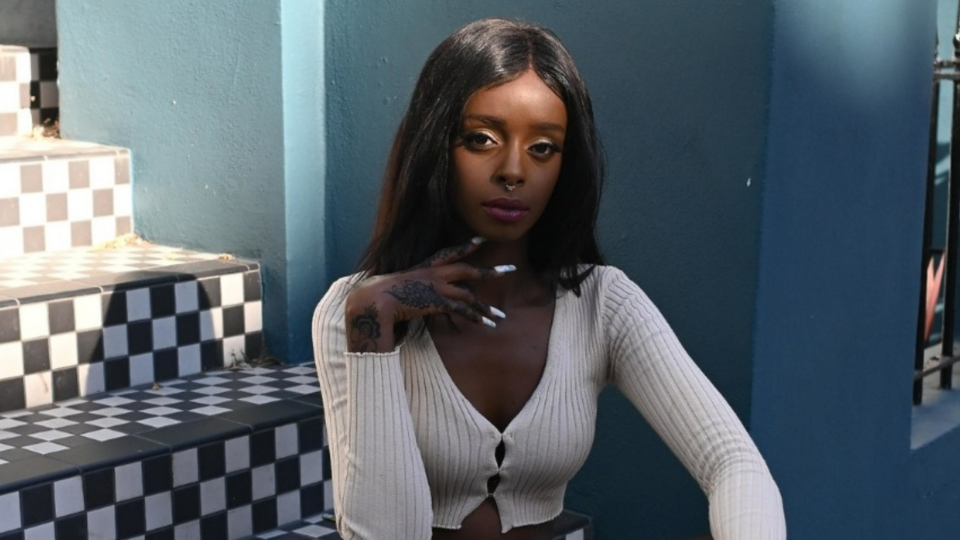
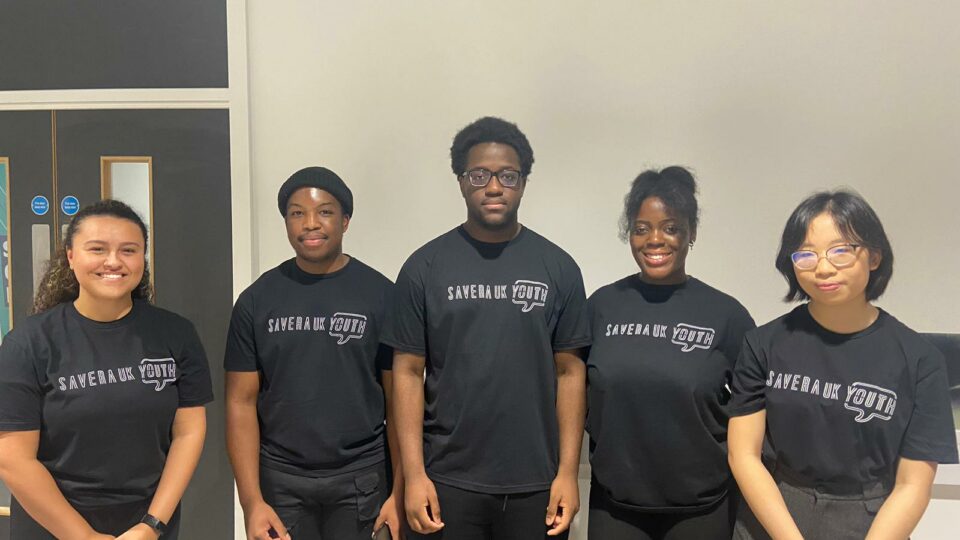
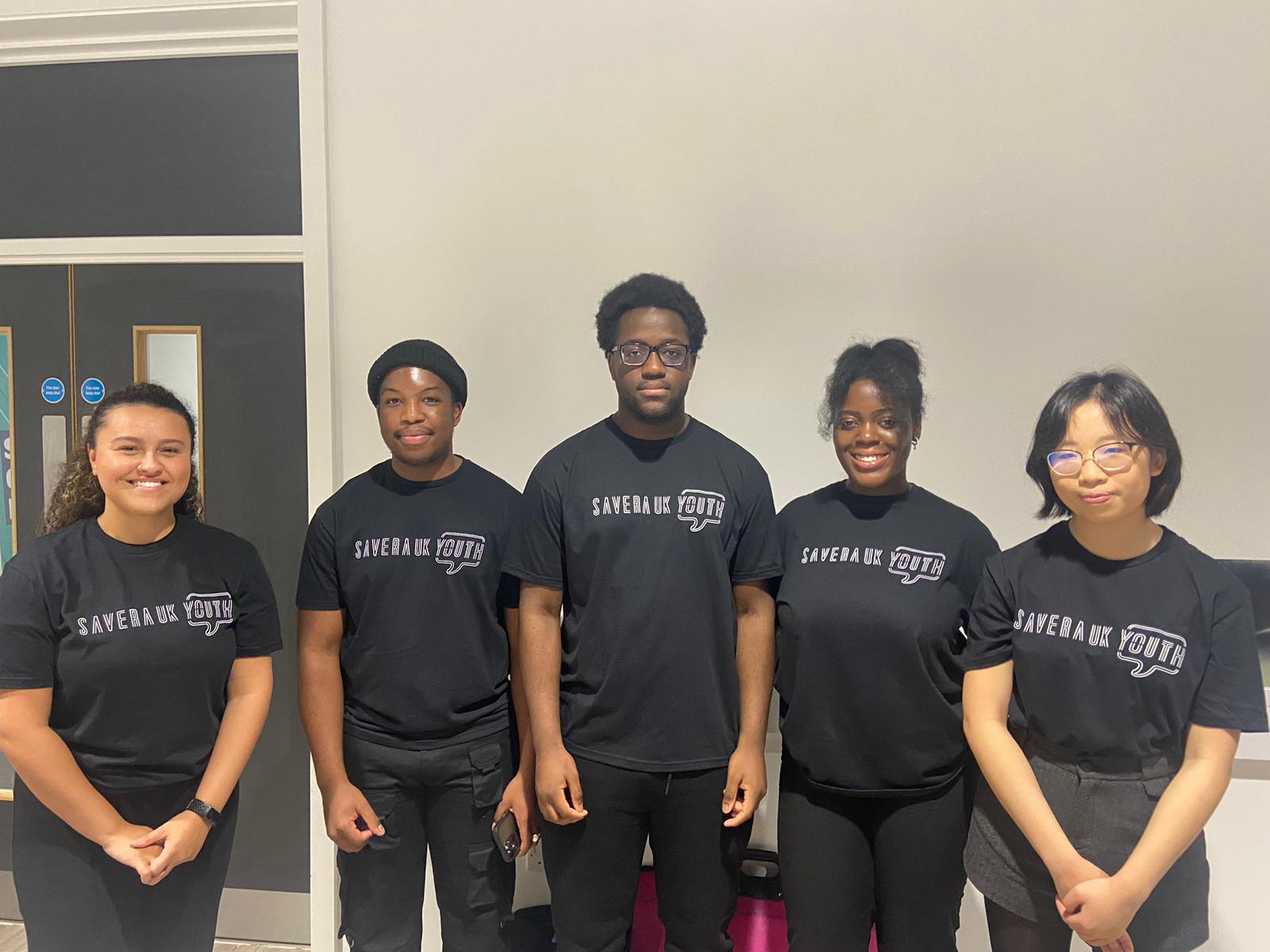
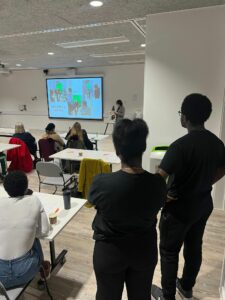
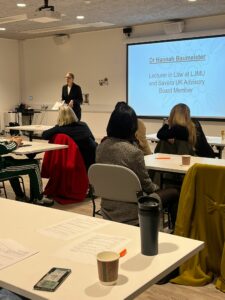
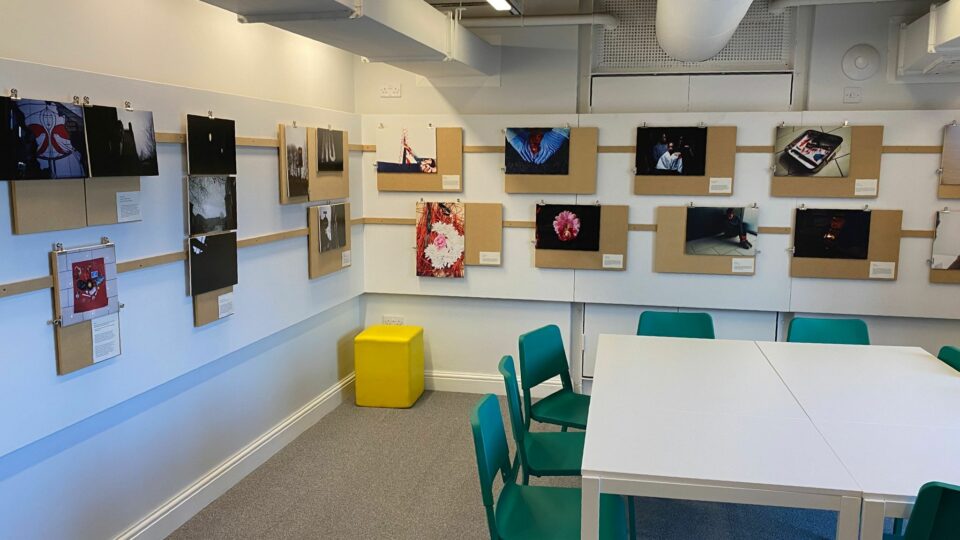
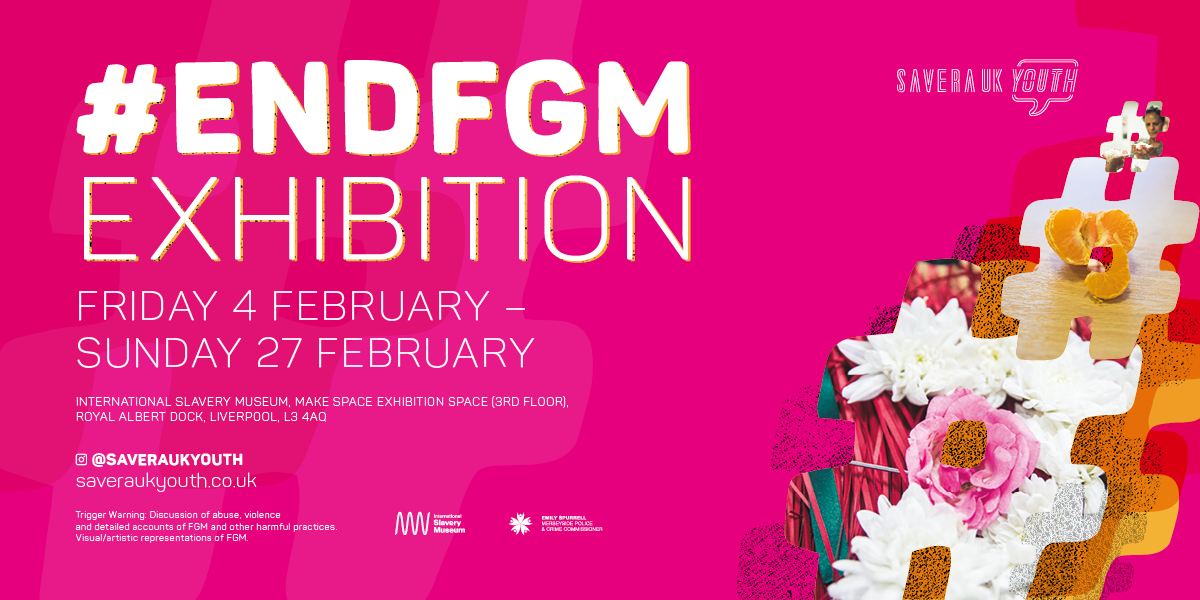
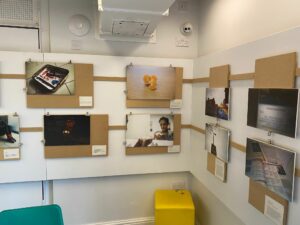 The exhibition was set up for UK Parliament Week in November 2019, in order to bring attention to harmful practices, particularly FGM. We are grateful to the International Slavery Museum and Merseyside PCC Emily Spurrell, for supporting Savera UK Youth in allowing us to spotlight our message as we mark International Zero Tolerance Day for FGM 2022 (Sunday, 6th February).
The exhibition was set up for UK Parliament Week in November 2019, in order to bring attention to harmful practices, particularly FGM. We are grateful to the International Slavery Museum and Merseyside PCC Emily Spurrell, for supporting Savera UK Youth in allowing us to spotlight our message as we mark International Zero Tolerance Day for FGM 2022 (Sunday, 6th February).